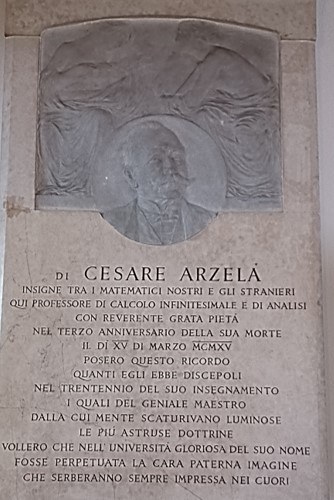Cesare Arzelà
(1847-1912)

He studied in Pisa under great masters such as Betti and Dini. He graduated from the Normal School in 1870 and then taught in middle school. He became a professor in Bologna in 1880 and remained there until the end of his life. He became famous for his brilliant research on the theory of functions of real variables, in line with the work started by Dini and developing Ascoli's results by working on the theory of functional analysis developed by Volterra. He provided new proofs, closer to modern ones, showing that the conditions of Ascoli's theorem are not only sufficient for compactness, but also necessary in a sense. The theorem is in fact still used today under the name of Ascoli-Arzelà. He stated and proved a necessary and sufficient condition for the limit of continuous functions in an interval to still be a continuous function, thus continuing Dini's work. Furthermore, he proved a necessary and sufficient condition for the limit of integrable functions to still be integrable. This was an extremely important result for its time which later became less interesting with the introduction of the Lebesgue integral.
Arzelà contributed to the foundations of functional calculus. He attempted the demonstration of the Dirichelet principle. It was Hilbert who demonstrated it in 1900 and then Tonelli, many years later, who generalized it in terms of his direct method of the calculus of variations.
(Source: "Il Dipartimento di Matematica dell'Università di Bologna: Personale, strutture, attività di ricerca - Anno accademico 1988-89" a cura di M. Bernabei e P. Negrini, editrice CLUEB)